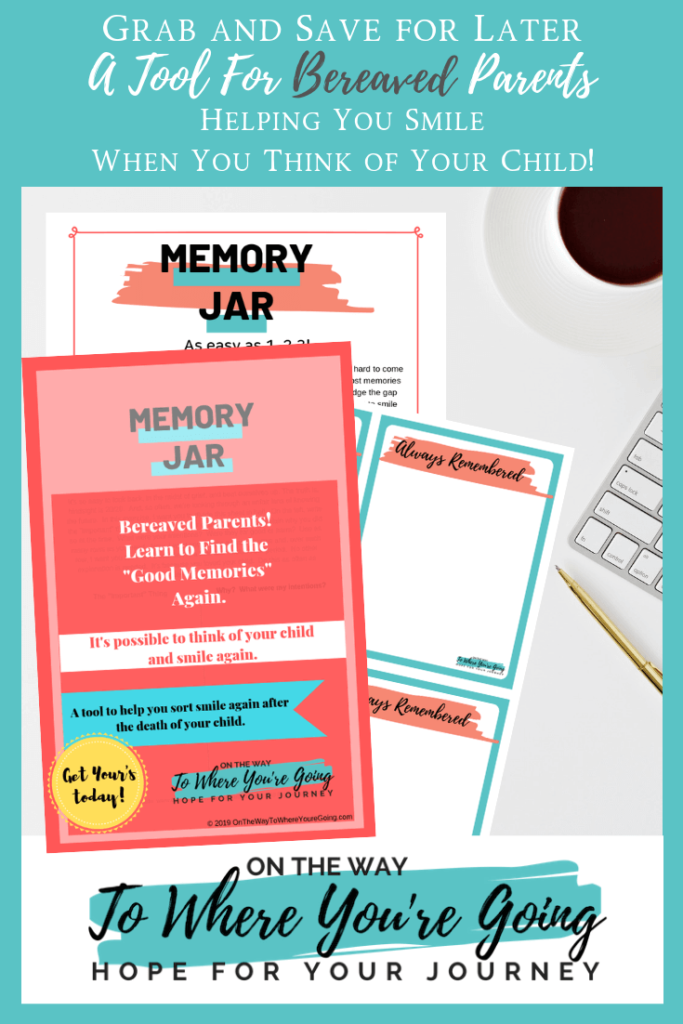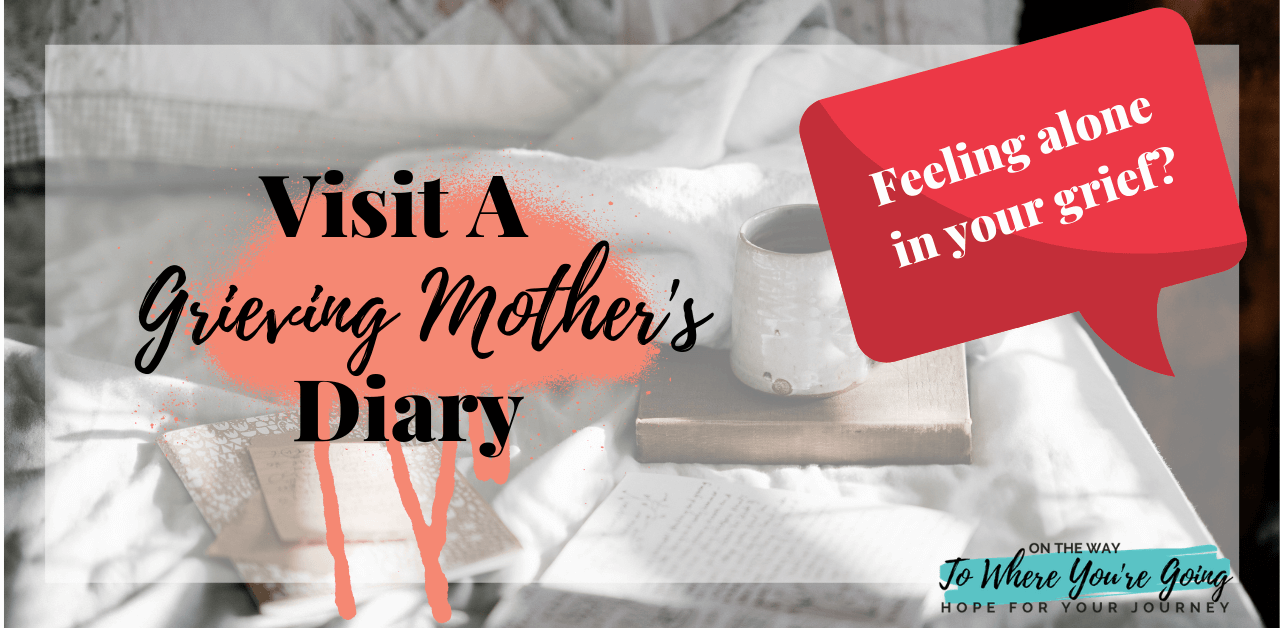Finding the good memories after child loss can be one of the biggest challenges. Take comfort in knowing you’re not alone,
I recently remembered my dad on his birthday. It was a wonderful experience. My siblings and I reminisced about fun, long summer days playing outside followed by Slurpees of every flavor from our local 7-Eleven.
Big gardens, riding lawn mowers, the smell of gasoline, old boats, a dog, and backyard weddings were all perfectly good things to remember on my father’s birthday. I loved giggling about the memories. I smile when I think of him.
Losing a Child is Different
In my personal experience, I’ve found that losing a parent is much different than losing a child, and remembering them is also very different. After losing my twenty-year-old son, several people encouraged me to think of the good memories.
What they didn’t understand was there were no good memories. Somewhere around four months, when the fog begins to fade, and you begin to realize your child is dead, the good memories go away. They drift away, and all that’s left is pain.
Every memory, every thought is pain. Physical pain. You ache, and can barely control your limbs. It takes hours to get a drink of water, as you sit on the couch planning to get it, but are sincerely lost in the wall in front of you.
As you make your way to the fridge, you see your child’s picture. You see a sweatshirt, a pair of shoes, and you remember they were their favorites. They were worn just a couple of days before “it” happened. Then, you see the smile on their face the last day they wore that outfit. You hear, “Hey, Mom!” And, you drop to the floor in a puddle of your tears.
“Ninety-nine percent of your mental energy is spent trying to save your child in reverse and every memory reminds you that you can’t press rewind”
A Little Taste of Hope
No good memories. Not for the bereaved mother. She has to find them. And one day… one moment when she thinks of her child and smiles, just for a second, she feels the magic of hope. She takes a deep breath in and smiles because she’s fought so hard to make it to that day.
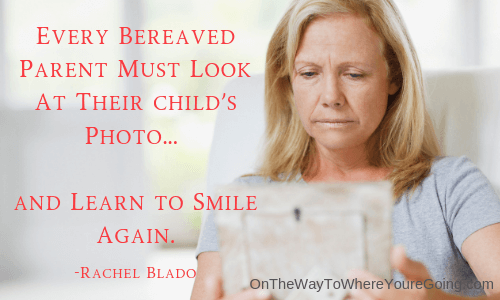
Each day she continued to get up was a fight. It’s a constant reminder to herself that she can make it through this day without her child. One day down, 40 more years to go; 14,000 more days. But, when you get that first smile, while looking at their picture, you realize it’s the first strand of hope you needed to actually believe what you were saying. “Maybe, I can make it another day… for real.”
“One day, you’ll look at your child’s picture and smile. Not every time. But, sometimes.”
Others Have Gone Before You
No — remembering the “good times” doesn’t work for the parent who’s lost a child. Thinking about their first steps hurts. Thinking about their silly jokes and simultaneously seeing them smashed behind a steering wheel, drowning in a river, or dead in your arms, just doesn’t seem to mesh well together. But, that’s the death of a child.
Ninety-nine percent of your mental energy is spent trying to save your child in reverse and every memory reminds you that you can’t press rewind. But one day, you’ll get that two seconds of hope you’ve heard others talk about.
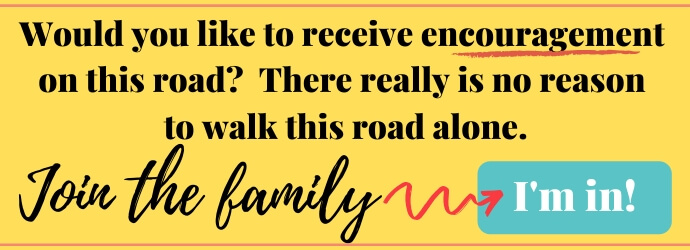
I want to let you know that hope is real. One day, you’ll look at your child’s picture and smile. Not every time. But, sometimes. The sadness will still be there. Your heart will still hurt, but you won’t fall down to the ground. You’ll be able to close your eyes and see the “good times” or maybe the “good time” (singular) without seeing their death. And, that right there should give you hope.
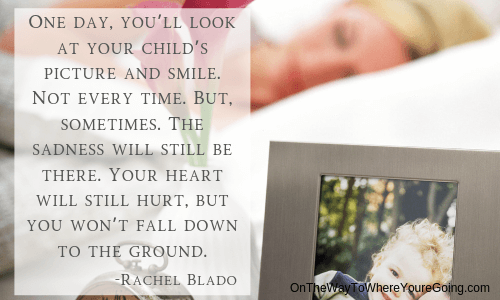
There’s hope on this journey. It’s very different than remembering a parent. The complexities are so much more intense. But know, others have gone before you. They’ve lived ten, twenty, thirty years without their child. Thirty birthdays, and they’ve managed, over the years, to find and grab onto some “good memories.” When you find them, breathe, smile, and old onto hope.
“When you talk, the “good memories” are so much easier to find, because you’re not stuck inside them, replaying them as a participant.”
Speak Their Name
Speak about your child today. Yes, your child that passed 15 years ago, speak about him or her today. Just awkwardly say their name. Break the silence you’ve been holding for 10 years about your child who rested five months in your womb. Some may think you’ve forgotten, moved on, or no longer think about your little one. But, you do… because you’re Momma. Talk about that little one today.
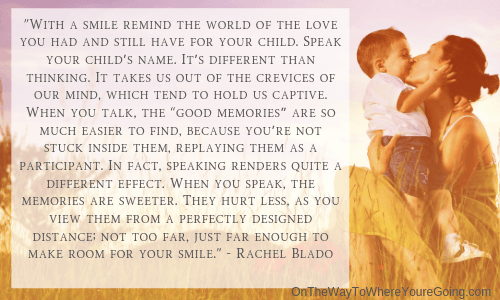
With a smile remind the world of the love you had and still have for your child. Speak your child’s name. It’s different than thinking. It takes us out of the crevices of our mind, which tend to hold us captive.
When you talk, the “good memories” are so much easier to find, because you’re not stuck inside them, replaying them as a participant. In fact, speaking renders quite a different effect. When you speak, the memories are sweeter.
They hurt less, as you view them from a perfectly designed distance; not too far, just far enough to make room for your smile. Be sure you’re sharing with someone. Then, let them speak. This is how you begin to find the good memories.
Stuck?
Finding the good memories is something every bereaved parent wants. They want to be able to look at their child’s picture and not cry or have pain in their chest. This can take years, but it’s a worthy goal. Don’t be hard on yourself. Remember, grief is not something to be erased away nor eradicated. It’s just love with no place to go. However, there’s nothing wrong with desiring to smile when you think about your child.
Here are some questions for you to ponder.
Are you still in shock?
It may simply be too early. “But, I laughed about the memories at my child’s memorial?” You may have gone through a stage where you were able to freely see the memories, remember the good times, and smile and laugh about them.
Many parents can do this immediately following the death of their child. It’s as if they only partially realize what has transpired. I refer to it as “the fog.” Unfortunately, this state doesn’t last forever, and they are thrown into a state of shock, in which they can barely believe that their child is really gone.
From this point on, finding the “good memories” will be a skill that needs to be learned. Slowly, overtime, and with practice, it will become a little easier.
Are you stuck in the same, dark, uncomfortable memories?
Are your memories ones in which you see your child dying or in pain? Do you constantly replay your worst regrets with your child? See yourself attempting to save your child? Are these thoughts running over and over in your mind? Do you find yourself “in” the memory, as if it’s happening in first person, or are you witnessing the memory from afar?
Depending on your answers to these questions, you may benefit from EMDR therapy. Eye Movement Desensitization and Reprocessing (EMDR) therapy can be very helpful for treating trauma.
“EMDR therapy facilitates the accessing and processing of traumatic memories and other adverse life experiences to bring these to an adaptive resolution. After successful treatment with EMDR therapy, affective distress is relieved, negative beliefs are reformulated, and physiological arousal is reduced.” (EMDR Institute, Inc.)
I have had personal experience with EMDR therapy and found it to be extremely helpful.
Do you find it difficult to have good feelings about almost anything?
Many are sad and disappointed that they cry when they think of their child. However, upon further inspection, you’ll see that they cry about almost everything. It’s difficult for them to smile about anything.
Their energy is low, anxiety is high, and nothing to little motivates them. These are signs of depression. It’s very common to be depressed when moving through a season of grief. It’s very common and nothing to be direly afraid of. However, you have options.
I highly suggest speaking to a therapist and pursuing on-going therapy. (Remember, I am not a doctor. Please heed the recommendations of your doctor.) Medications are available, but please remember, grief is normal and should be worked through. No amount of medication will instantly remove the grief that is meant to be felt and processed.
Finally, move! I know this is the complete opposite of what your body feels like doing, but a daily walk in fresh air can make a huge transformation in your ability to have positive thoughts. For the first two days, try walking to the mailbox. Then, go a little further.
You may even try walking on the treadmill at the gym. If you find yourself crying while walking, know you’re not alone. I spent many days crying on a treadmill in public. I survived.
Are you going back far enough?
After the loss of a child, sometimes, it’s easier to enjoy the memories if they aren’t very recent. Sometimes, there simply needs to be a level of separation between where you currently are.
Thinking about what your child was doing the week before they died, can be absolutely devastating, regardless how funny or encouraging the memory should be. It pushes you into realizing your reality, which may be too hard for you to grasp at this time.
Take some time, try to find a time period you can withstand. Start there; not by thinking about the memories, but by speaking about them.
Are you sharing and allowing others to share?
Often, after a loss of this magnitude, we find ourselves shutting down. We close the door and cocoon within our pain. We lay in a pit of despair. Allow someone to lie beside you. Allow them into your space.
At first, they needn’t say a word. But, when you’re ready, give them permission to smile about your child. Perhaps, the smile will spark a tiny bit of joy within your broken heart, leading you to the path of “good memories.”
When You’re Ready
When you think you’re ready, I’ve created a small activity to help engage you in remembering a few “good memories” about your child. This activity involves friends and family and will give you access to memories that are just far enough away from your heart to make you smile. It’s simple.
Round up the contact info for friends and family. Send them a simple text, email, instant message, etc. asking for fun memories they have about your child. The memories can be from any age group. Once you have the memories, place them safely in a memory jar. Talk about these memories.
You can even talk about them to the friend or family member that sent it in. Just ask them to tell you more. Then, smile. One day, you’ll be able to do the same with your own memories; maybe not all of them, but some of them.
Xoxo,
Rachel

“Be sure you’re sharing with someone. Then, let them speak. This is how you begin to find the good memories.”

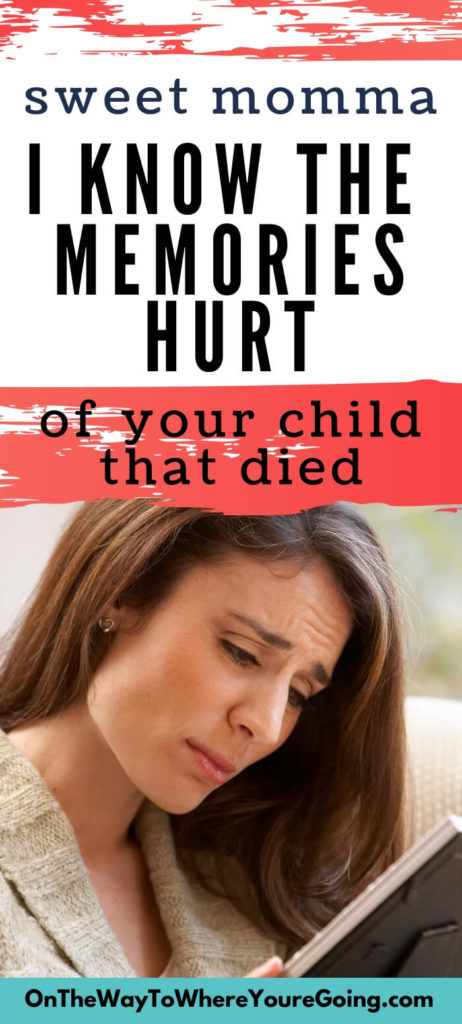
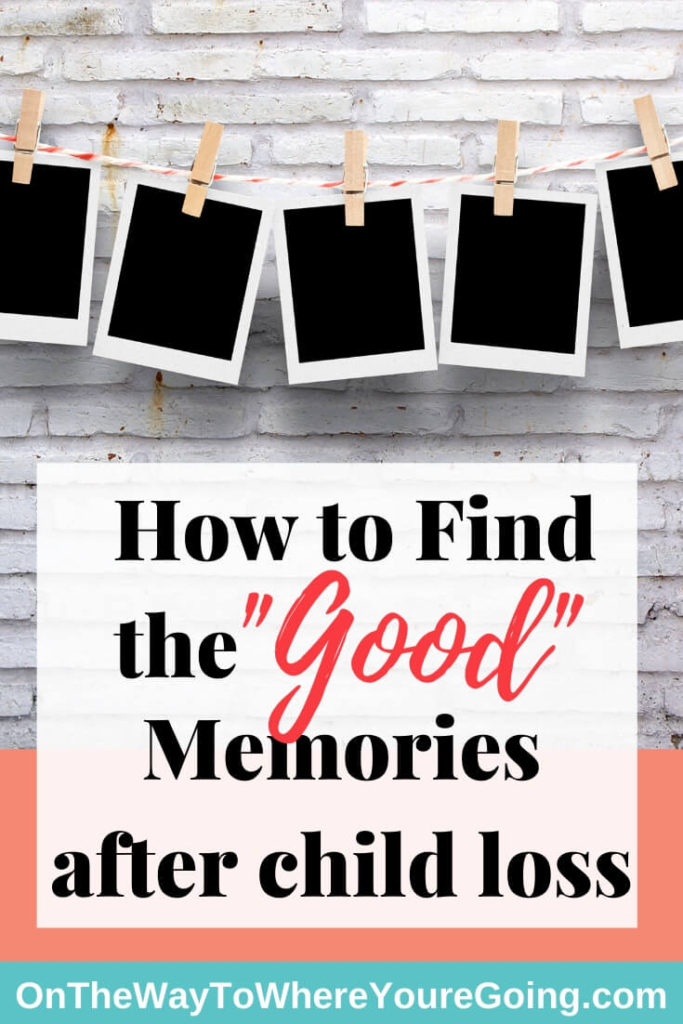
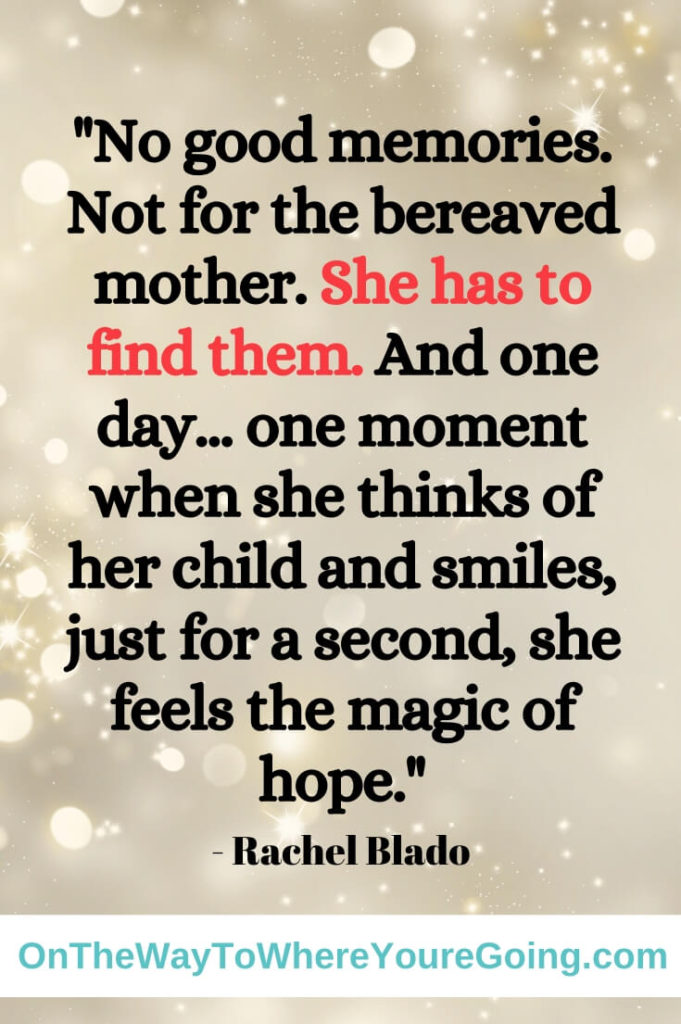
Join my newsletter. You’ll also gain access to helpful resources.
Want daily interaction? Like my page on Facebook for daily encouragement.




